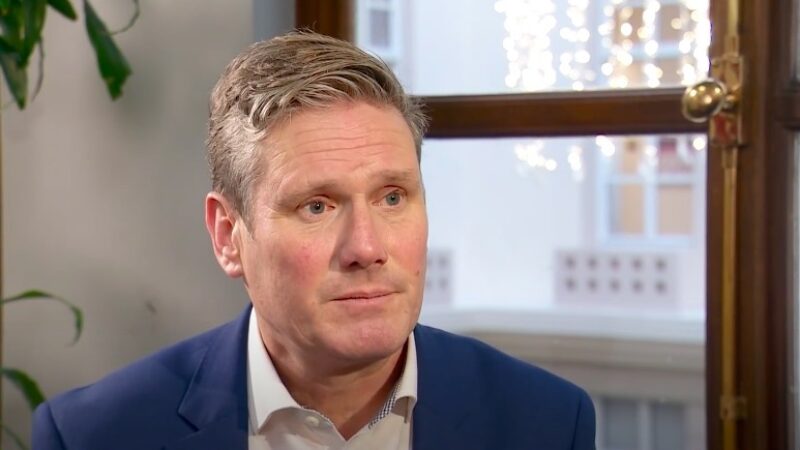
Keir Starmer has told the BBC that he “really hated selling myself to the membership” during the Labour leadership contest and feels “much more comfortable” having been elected.
The new leader reflected on his campaign as well as his style of leadership in opposition during the Covid-19 crisis during an interview on the Coronavirus Newscast podcast on Thursday evening.
He told the BBC’s Laura Kuenssberg: “For me personally, I really hated selling myself to the membership and I much prefer leadership decisions as leader of the Labour Party. I’m much more comfortable in this than I am in the campaign.”
Asked by the surprised podcast hosts whether he hated the campaign or the members, Starmer said: “Oh no, I didn’t say I don’t like the mem– what I don’t like is selling myself to the membership.”
He clarified: “You’re in your own party and you’re up against colleagues, and very good colleagues, who you like. And it is a very odd thing to do. I’m very glad that that part of it is over, I have to say.”
“I really hated selling myself into the membership and I much prefer having to take leadership decisions as leader of the Labour Party”
Sir Keir Starmer tells the #CoronavirusNewscast he’s “very glad” the leadership campaign is overhttps://t.co/J9867heJ6b pic.twitter.com/F6ultftm0P
— BBC Politics (@BBCPolitics) April 16, 2020
Starmer also shared his views on the government’s handling of the pandemic, and his calls for an exit strategy from the coronavirus lockdown to be published this week, which have been refused.
“I was talking to the Swedish Prime Minister today, and they’ve got different conditions in place,” he said. Sweden has used a ‘light-touch’ approach, and its death rate is higher than that of other Nordic countries.
People in Sweden have been urged to take personal responsibility for following physical distancing advice, rather than have strictly enforced rules as in the UK and other European countries.
Schools are still open in Sweden, and people are still able to shop, go to restaurants and get haircuts. Concerns have been expressed by teachers and school staff, however, with open letters describing the policy as “unacceptable”.
“But I’m not doing a comparison here, I’m just saying I think the British public know and understand the situation we’re in,” Starmer said. “They’re complying with lockdown in their millions, and thanks for them for doing that.”
He added: “I do think that the government made some mistakes in the early stages of this, and the response that they put in place. I think they were too slow, I didn’t think they moved quickly enough on things like the initial lockdown and policing it.
“Arguably they got off on the wrong footing. Now I don’t want to dwell on that for obvious reasons at this stage. But what I do want is to say, don’t make the mistake of not planning now for what will happen in a few weeks.”
Starmer explained that he thought current delays – particularly regarding publication of an exit strategy – were attributable to Boris Johnson being deputised.
“The other factor though, I think, is we all know that the Prime Minister has been in hospital,” the Labour leader said. “We’ve all been pleased to see that he’s come out and is feeling better.
“And it feels as though they’ve been in a position probably for a week or ten days now where it’s been difficult for the government to make big decisions. And I think there’s a bit of that lying behind this as well.
“I suspect, although I don’t know, that Dominic Raab is just reluctant – he probably does know that it’s time for an exit strategy – but he’s probably reluctant to sign it off without the Prime Minister and I think there’s a bit of that in the mix.”
Starmer refused to be drawn into setting out an exit strategy himself, arguing that “setting up rival strategies is I think genuinely the wrong thing to do” and stressing that he is “not trying to be oppositional for oppositional sake”.
It was announced on Thursday that restrictions will be in place for a further three weeks, and that five tests – including reassurance that there would not be a second peak – would have to be met before the government considers easing the measures.




More from LabourList
Government abandons plans to delay 30 local elections in England
‘The cost of living crisis is still Britain’s defining political challenge’
‘Nurses are finally getting the recognition they deserve’